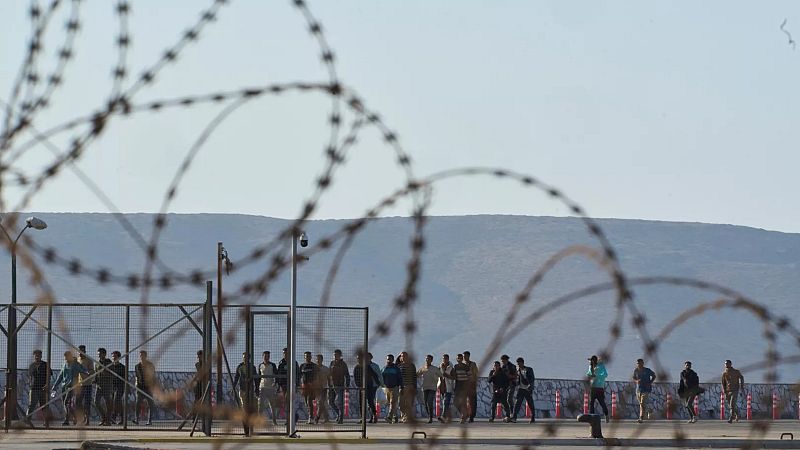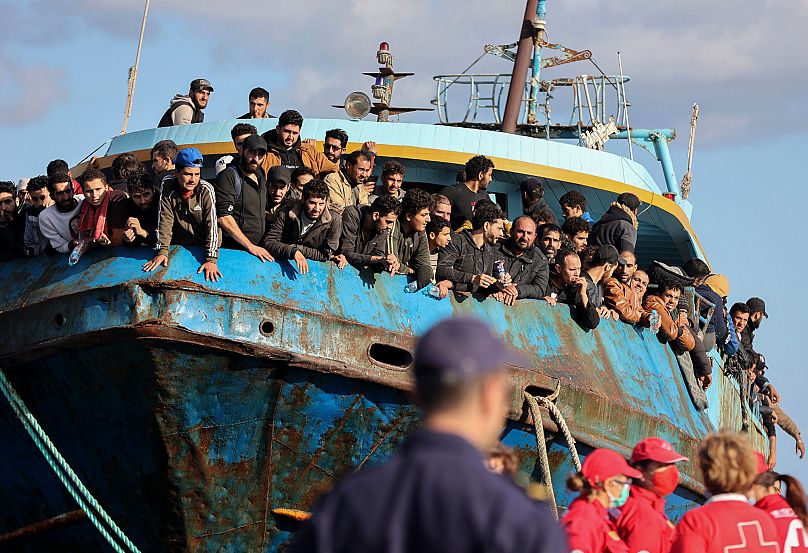Greek island of Crete sees surge in migrant arrivals despite harsher asylum policy

Authorities in Greece say more than 120 migrants were intercepted off the island of Crete early on Monday, the latest in a series of arrivals despite a suspension of asylum claims and plans for tougher detention rules.
Two boats, carrying 58 and 68 people and believed to have departed from Libya, were stopped and the passengers placed under guard at temporary shelters.
More than 100 other migrants arrived on Crete over the weekend after strong winds eased.
Greece's conservative government suspended all asylum claims for migrants arriving by sea from North Africa in July, a move it argued helped deter crossings that peaked in July at more than 2,500 in a single week.
The suspension passed by a vote of 177-74 despite fierce opposition from left-wing parties, which unsuccessfully challenged the amendment as unconstitutional.
The emergency measures drew sharp criticism from international human rights organisations.
The United Nations High Commissioner for Refugees expressed "deep concern." While acknowledging Greece's right to manage borders, UNHCR said border control "must be in line with international and European law."
Michael O’Flaherty, the Council of Europe's Commissioner for Human Rights, also condemned Athens' response, arguing it "would legalise returning people to face a risk of torture and other serious violations, in breach of (Greece's international) obligations."
But Thanos Plevris, the migration affairs minister, told lawmakers up to 1,000 migrants were arriving daily and described the situation as resembling an "invasion."
The central government remains at odds with regional authorities in Crete over a plan to build a permanent transit facility on the island.
It is preparing draft legislation, to be submitted after the summer recess, that would mandate imprisonment for migrants whose asylum claims are denied and require ankle monitors during a 30-day compliance period before deportation.
Trying to reach Europe
Greece remains a key entry point to the EU for individuals fleeing conflict and hardship in the Middle East, Africa, and Asia.
Arrivals surged last year, with over 60,000 migrants landing in Greece — the majority by sea — compared to around 48,000 in 2023, according to UN refugee agency data.
By mid-June 2025, Greece had recorded 16,290 arrivals, over 14,600 of which were by sea.
With Greek authorities stepping up patrols along the eastern maritime border with Turkey, traffickers appear to be increasingly choosing the longer and more dangerous route across the Mediterranean from North Africa, using larger boats capable of carrying more people.
Today



